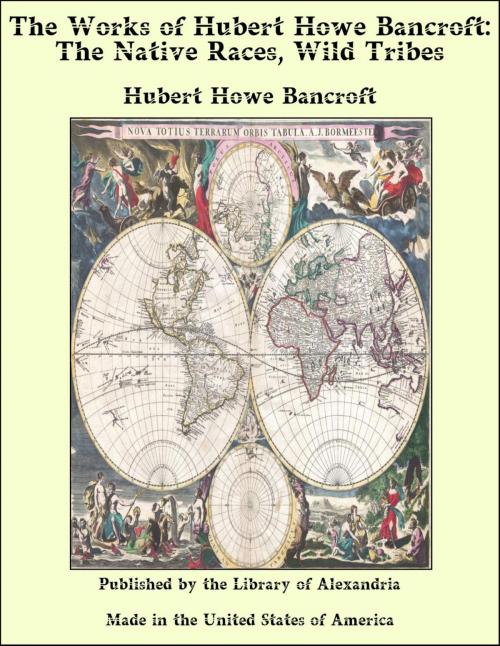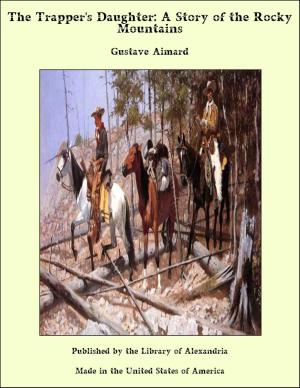The Works of Hubert Howe Bancroft: The Native Races, Wild Tribes
Nonfiction, Religion & Spirituality, New Age, History, Fiction & Literature| Author: | Hubert Howe Bancroft | ISBN: | 9781465581808 |
| Publisher: | Library of Alexandria | Publication: | March 8, 2015 |
| Imprint: | Language: | English |
| Author: | Hubert Howe Bancroft |
| ISBN: | 9781465581808 |
| Publisher: | Library of Alexandria |
| Publication: | March 8, 2015 |
| Imprint: | |
| Language: | English |
In pursuance of a general plan involving the production of a series of works on the western half of North America, I present this delineation of its aboriginal inhabitants as the first. To the immense territory bordering on the western ocean from Alaska to Darien, and including the whole of Mexico and Central America, I give arbitrarily, for want of a better, the name Pacific States. Stretching almost from pole to equator, and embracing within its limits nearly one tenth of the earth's surface, this last Western Land offers to lovers of knowledge a new and enticing field; and, although hitherto its several parts have been held somewhat asunder by the force of circumstances, yet are its occupants drawn by nature into nearness of relationship, and will be brought yet nearer by advancing civilization; the common oceanic highway on the one side, and the great mountain ramparts on the other, both tending to this result. The characteristics of this vast domain, material and social, are comparatively unknown and are essentially peculiar. To its exotic civilization all the so-called older nations of the world have contributed of their energies; and this composite mass, leavened by its destiny, is now working out the new problem of its future. The modern history of this West antedates that of the East by over a century, and although there may be apparent heterogeneity in the subject thus territorially treated, there is an apparent tendency toward ultimate unity.
In pursuance of a general plan involving the production of a series of works on the western half of North America, I present this delineation of its aboriginal inhabitants as the first. To the immense territory bordering on the western ocean from Alaska to Darien, and including the whole of Mexico and Central America, I give arbitrarily, for want of a better, the name Pacific States. Stretching almost from pole to equator, and embracing within its limits nearly one tenth of the earth's surface, this last Western Land offers to lovers of knowledge a new and enticing field; and, although hitherto its several parts have been held somewhat asunder by the force of circumstances, yet are its occupants drawn by nature into nearness of relationship, and will be brought yet nearer by advancing civilization; the common oceanic highway on the one side, and the great mountain ramparts on the other, both tending to this result. The characteristics of this vast domain, material and social, are comparatively unknown and are essentially peculiar. To its exotic civilization all the so-called older nations of the world have contributed of their energies; and this composite mass, leavened by its destiny, is now working out the new problem of its future. The modern history of this West antedates that of the East by over a century, and although there may be apparent heterogeneity in the subject thus territorially treated, there is an apparent tendency toward ultimate unity.















